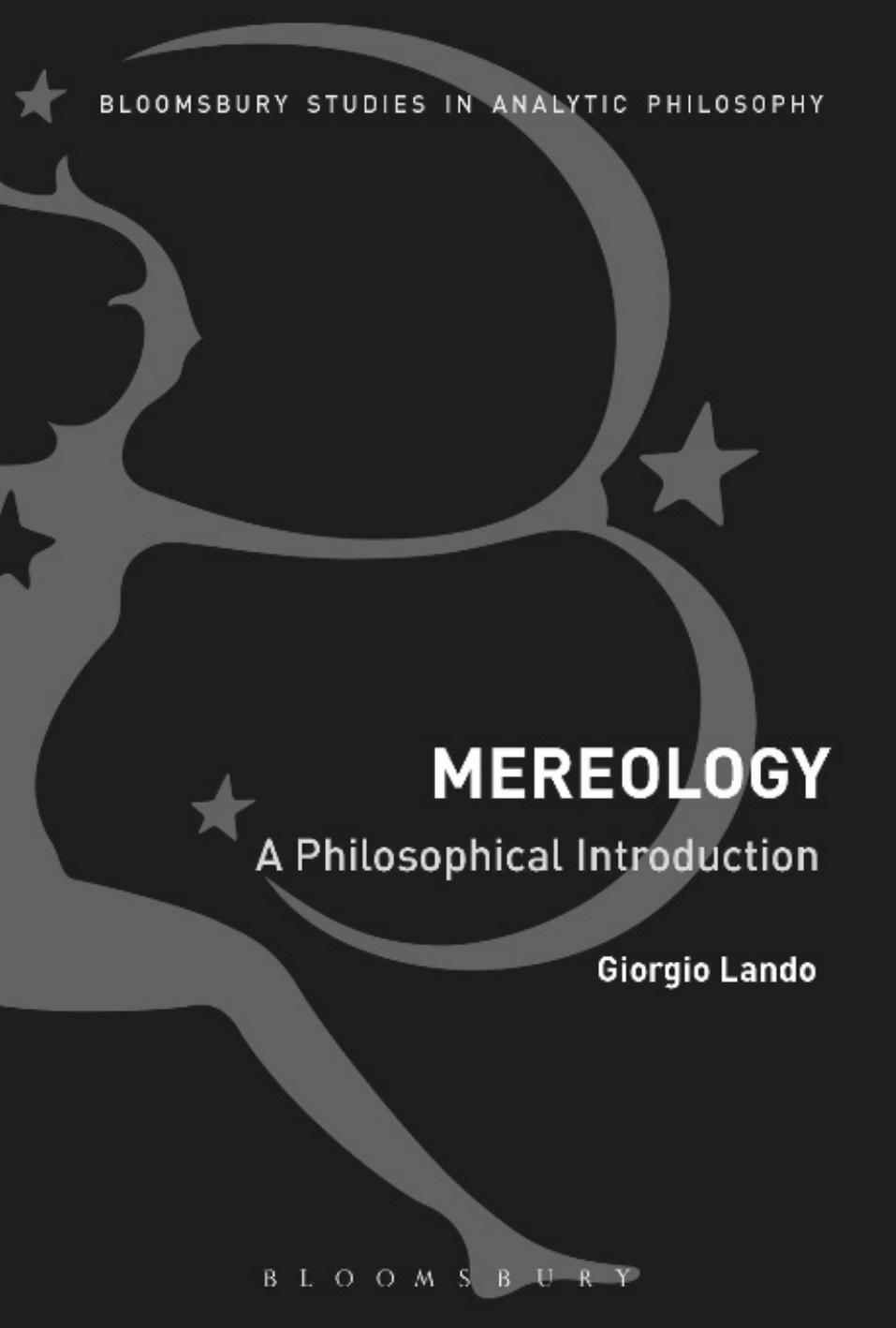Mereology: A Philosophical Introduction by Giorgio Lando

Author:Giorgio Lando
Language: eng
Format: epub, pdf
Publisher: Bloomsbury UK
8.3 Extensionalism and stipulation
Could we stipulate that facts and propositions are in a certain way? Or are they something out there, endowed with an objective nature of some kind? When philosophical entities are at stake, it seems as though the fate of Extensionalism could be settled with a stipulation. The same suspicion arises with respect to nonphilosophical abstract entities (such as sets, or structures employed in formal semantics for the interpretation of a formal language), when these abstract entities are attributed some parts and mereology is applied to them.
It is difficult to generalize claims about such a wide and diverse domain of things, but—at least in some cases—it seems plausible that it is a matter of choice and stipulation whether to be extensionalist or not.
In the debate about concrete entities (as in our example involving Monte Grappa and Mountmatter in Chapter 7), it seems that the discernibility intuitions are a datum; we are not free to stipulate that Mountmatter would survive the annihilation of a molecule, or that it is photogenic; we can only interpret some data in various ways. By contrast, nothing similar happens in the case of abstract entities, because there is no discernibility intuition at play. The entities at stake are philosophical constructions that can be designed to violate Extensionalism.
Why are facts and propositions often stipulated in an anti-extensionalist way? The reason for this relatively common—though controversial—choice seems to lie in language. Facts have the main theoretical role of making sentences true; propositions are the objects of so-called propositional attitudes, and attitudes are attributed by complex sentences, in which smaller sentences figure in the so-called that-clauses.
The fact that Paris is west of Berlin is conceived as a sort of metaphysical mirror of the sentence “Paris is west of Berlin,” which the fact would make true. The (false) proposition that Berlin is west of Paris is conceived as a sort of metaphysical mirror of the sentence “Berlin is west of Paris,” which is included in the that-clause of the belief ascription “John believes that Berlin is west of Paris.”5
This mirroring can be identified as the source of the anti-extensionalist trends in the metaphysics of facts and propositions. It is because these entities are construed as metaphysical “shadows” of natural language that order and repetition matter in them: we can refer to the same thing twice, and it matters—for the syntax and for the truth conditions of a sentence—whether a referential expression is the subject or the direct object of a predicate. In the literature about facts and propositions, this is a major source of perplexity about them: after all, why should we think that there are structured entities in the world that mirror the structure of linguistic entities?
Here we cannot decide whether facts and propositions exist, and whether it is sound to construe them as structural mirrors of sentences. It is enough to reiterate that, when these kinds of theoretical entities are at stake, some decisions and stipulations about them must be adopted, and that, in the context
Download
Mereology: A Philosophical Introduction by Giorgio Lando.pdf
This site does not store any files on its server. We only index and link to content provided by other sites. Please contact the content providers to delete copyright contents if any and email us, we'll remove relevant links or contents immediately.
The remains of the day by Kazuo Ishiguro(8965)
Tools of Titans by Timothy Ferriss(8360)
Giovanni's Room by James Baldwin(7315)
The Black Swan by Nassim Nicholas Taleb(7097)
Inner Engineering: A Yogi's Guide to Joy by Sadhguru(6784)
The Way of Zen by Alan W. Watts(6591)
Asking the Right Questions: A Guide to Critical Thinking by M. Neil Browne & Stuart M. Keeley(5751)
The Power of Now: A Guide to Spiritual Enlightenment by Eckhart Tolle(5742)
The Six Wives Of Henry VIII (WOMEN IN HISTORY) by Fraser Antonia(5493)
Astrophysics for People in a Hurry by Neil DeGrasse Tyson(5172)
Housekeeping by Marilynne Robinson(4433)
12 Rules for Life by Jordan B. Peterson(4298)
Double Down (Diary of a Wimpy Kid Book 11) by Jeff Kinney(4257)
The Ethical Slut by Janet W. Hardy(4239)
Skin in the Game by Nassim Nicholas Taleb(4232)
Ikigai by Héctor García & Francesc Miralles(4231)
The Art of Happiness by The Dalai Lama(4120)
Skin in the Game: Hidden Asymmetries in Daily Life by Nassim Nicholas Taleb(3986)
Walking by Henry David Thoreau(3949)
